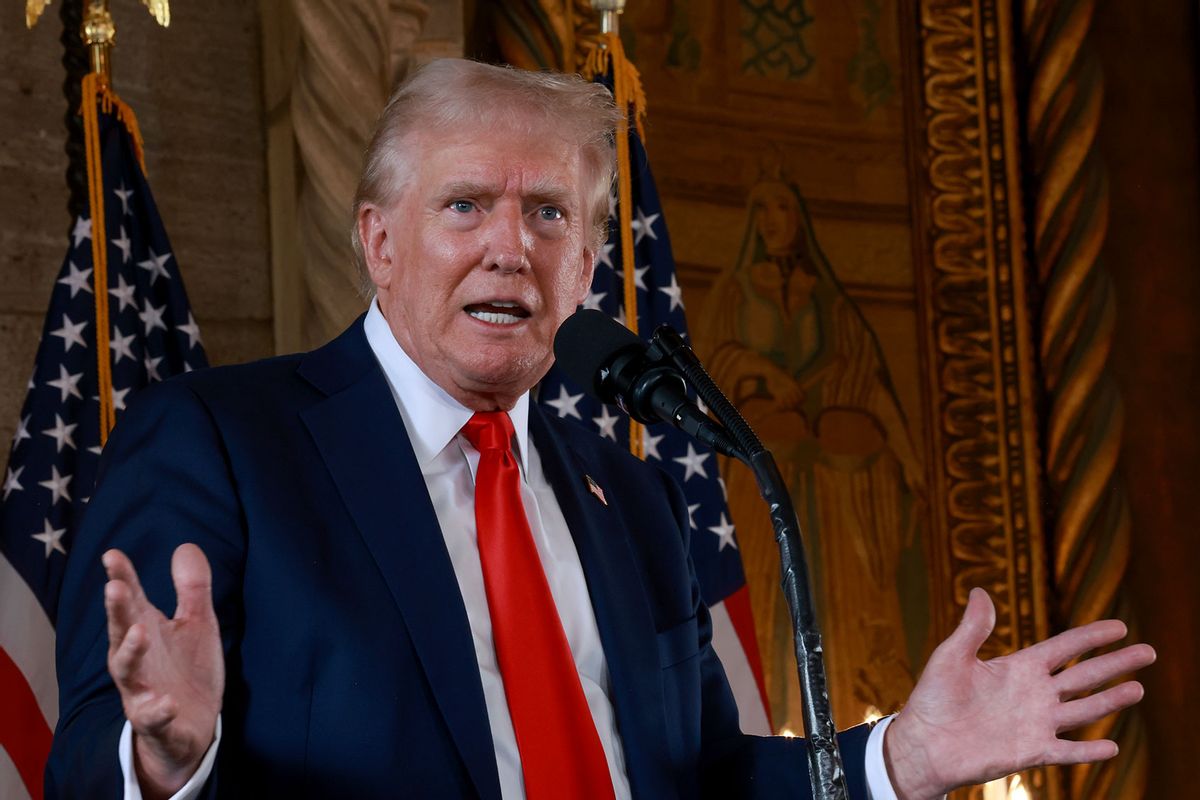President-elect Donald Trump's promise to enforce a mass deportation of immigrants is exciting private prison executives, who on earnings calls Thursday salivated at the "unprecedented opportunity" that a second Trump presidency will bring for their profits.
The mass deportations would wrench apart families and shatter the lives of millions of people who possibly spent years or decades establishing themselves, their families and their communities in the country, critics warn. Trump defined much of his campaign by claiming, in dehumanizing and racist terms, that deporting them would improve the economy and reduce crime. Policy experts said that doing so would undermine businesses that hire them, cause an inflation spike and do almost nothing to address crime, since undocumented immigrants commit crimes at a lower rate than the average American.
Trump advisors are openly discussing the construction of mass deportation camps along the southern border, where tens of thousands of people will be detained as judges process their cases. While Democratic presidents have expanded the incarceration and deportation complex in the last two decades, Trump's first-term record and second-term proposals represent a massive and unprecedented escalation. Private prison executives believe that whatever the effect of the deportations on the rest of American society and economy, they at least will make a lot of money from it.
The first hint of their impending good fortune came as Trump was projected to win the presidential election; as the news came, their stock prices soared. “One HUGE winner from Trump’s win: Private prison companies GEO Group Inc. and CoreCivic Inc.,” observed Bloomberg News' Steven Dennis on Wednesday. “Their stocks, which could benefit from Trump’s plans for rounding up millions of immigrants, rocketed higher today 41% and 29% respectively.”
As Thomson Reuters Foundation journalist Avi Asher-Schapiro noted, the incarceration giant Geo Group already has over a billion dollars in ICE contracts to manage existing immigration detention facilities and a GPS monitoring system of 175,000 migrants. If the House GOP immigration bill passes, he wrote, that number of people under surveillance could expand to 7 million.
Private prison executives did not passively wait for their "unprecedented opportunity" to come. Instead, companies like Geo Group have poured hundreds of thousands of dollars into pro-Trump Super PACs, as well as the maximum $5,000 donation to his official campaign and donations to other Republican candidates for House and Senate. Trump, in return for their longstanding support, has not only pursued the kinds of policies that would reap windfall profits to private prisons, but also reversed an effort by former President Barack Obama to phase private prisons out of the process.
In the earnings calls Thursday, executives celebrated the prospect of a “much more aggressive” policy framework from the incoming Trump administration, and with it, increased government funding of private contracts for mass detention, electronic tracking devices and the transportation of detainees within the United States and to other countries. “The GEO Group was built for this unique moment in our company’s– country’s history, and the opportunity that it will bring,” George Zoley, the company's founder and executive chairman said in a call, assuring participants of his company's "capability to rapidly scale up" their services and the potential influx of $25 million in revenues for air transport alone.
We need your help to stay independent
"It feels like with this election this year, we’re heading into an era that we really haven’t seen, maybe only once or twice in the company’s history, where the value proposition of the private sector for both our state partners and our federal partners are going to be not only strong today, but even stronger as we go in the next couple of years," Damon Hininger, CEO of CoreCivic, crowed to his own shareholders.
While Zoley and Hininger will be amply compensated for their work, such an effort would potentially cost the federal government and its taxpayers as much as $88 billion a year. In a round of post-election press calls, however, Trump appeared unconcerned. "It’s not a question of a price tag. It’s not — really, we have no choice. When people have killed and murdered, when drug lords have destroyed countries, and now they’re going to go back to those countries because they’re not staying here. There is no price tag," he told NBC News.
For all the influx of federal money and other profits, private prisons are known for providing substandard care for people in their custody. A recent Human Rights Watch report found that inadequate medical care contributed to half of the deaths that occurred in their facilities; another from the U.S. Commission on Civil Rights revealed that private prisons failed to adhere to detention health care standards, protect LGBTQ people from abuse, comply with standards to prevent and respond to sexual assault, provide access to legal services or provide sufficient nutritious food, especially compared to public prisons.
The reported neglect has been occurring with ICE's knowledge, but according to a 2014 report from the Government Accountability Office, the agency often either ignores the fact that at least 125 facilities have been operating under outdated standards from 2000 or waives certain standards for contractors at its discretion. Under the existing quota model, private prisons are driven to fill as many beds with detainees as possible — there's hardly any financial incentive to make the quality of their stay more tolerable.
The degree to which ICE can expand its contracts under Trump will depend heavily on how much funding Congress authorizes for the project; while the GOP is expected to take control of the Senate, the House looks less certain. But the president-elect can set much of his plans in motion by executive order, and private prison executives seem confident in their man to deliver.



Shares